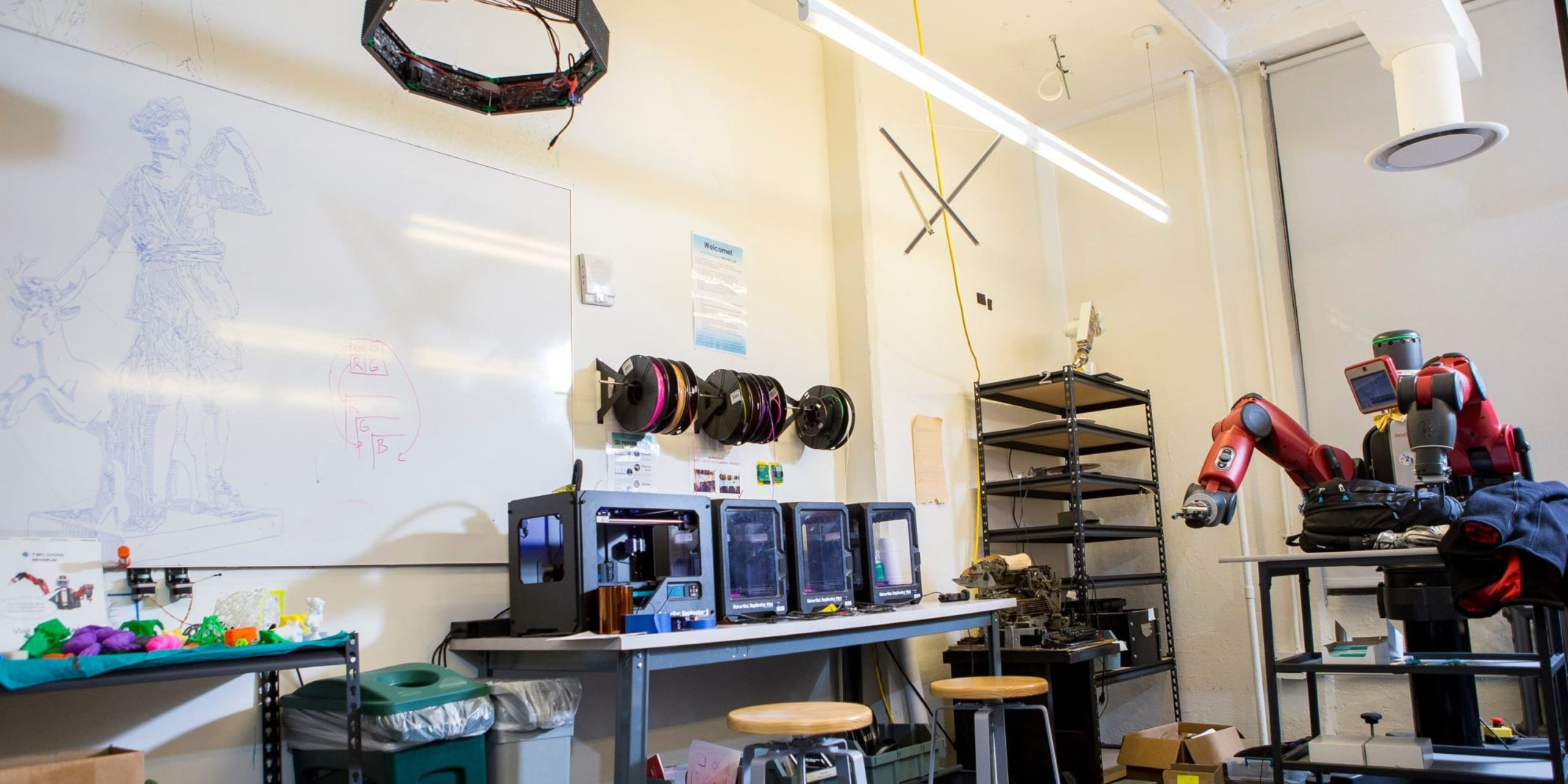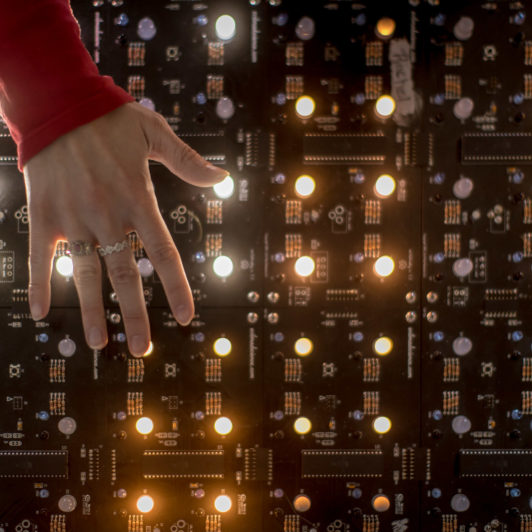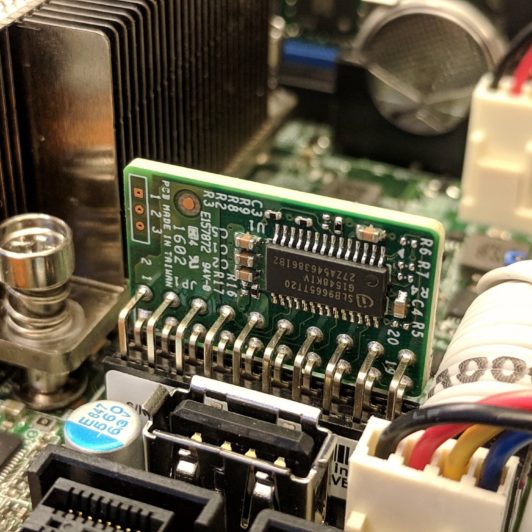Two Sigma uses a scientific approach, along with vast amounts of data and compute power, to attempt to solve some of the hardest problems in finance. But a core element of our thesis is that all the data and cutting-edge technology are necessary, but insufficient, for success. Other key ingredients to success include creativity, community, and lifelong learning and curiosity—not to mention a healthy dose of fun.
We recognized this early, and beginning in 2012, we created what we sometimes call “gyms for the mind” in our New York and Houston offices to complement the traditional gyms that we provide for our physical health. We call them our Hacker Labs and encourage employees to use them often. Appropriately cluttered with 3D printers, oscilloscopes, and drawers full of tools and electronic components, these are classic “makerspaces”—active spaces where employees from all backgrounds can learn, share knowledge, and create things.

Makerspace culture derives in large part from the informal computing clubs of decades ago, where enthusiasts and tinkerers would hang out together, build their own computers, and try to “hack” technology—that is, try to figure out how to make various technologies do things they weren’t originally designed to do. Today, makerspaces such as Two Sigma’s Hacker Labs carry on the spirit of those early computing clubs and their modern successors.
“We’ve found that when you give people leeway to do something creative, a lot of innovation can result—and some of that finds its way back into our ‘day jobs.’”
—Mark Roth, senior engineer
The benefits of building—and breaking—things together
High-quality software engineering and quantitative research involve more than just subject-matter expertise and training. Both, in their own ways, are a craft. Writing elegant code and building innovative forecast models takes perseverance, imagination, and collaboration. Spending time in the Hacker Lab is a way for employees to cultivate each of those qualities, especially if they are working on projects that require learning new skills or approaches along the way.
As Mark Roth, a senior Two Sigma engineer, put it, “We’ve found that when you give people leeway to do something creative, a lot of innovation can result—and some of that finds its way back into our ‘day jobs.’”
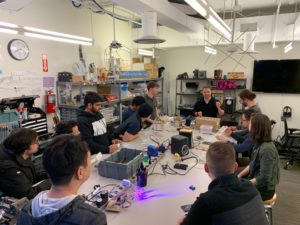
Our Hacker Labs are also places where people from different teams and roles can come together in a casual setting and solve problems together. After all, teaming up to teach colleagues with a wide range of backgrounds how to program an LED array helps make collaboration on “real” projects second nature.
Taking things apart and exploring their innermost workings is fun in its own right, but doing so can bear even greater rewards. Occasionally, our Hacker Labs have served as venues for commercial R&D. For example, Safeboot, a package that helps improve the security of the boot process for modern Debian-based x86 computers, stemmed partly from security research performed at Two Sigma’s New York Hacker Lab. So did LinuxBoot, an open source firmware for servers that improves security, flexibility, and resiliency.
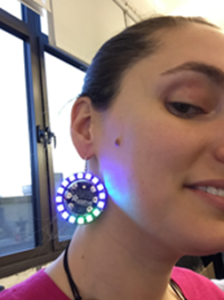
Still, in the spirit of classic makerspaces, not every project in the Hacker Labs involves advanced engineering, or even engineers. Some projects do offer engineers an opportunity to try out new programming languages or libraries. Others, however, encourage folks with no technical knowledge at all to begin learning new skills from their peers, like soldering or prototyping on a breadboard—or even making actual bread, which several groups did in their home kitchens while working remotely early in the Covid-19 pandemic.
Teaching and learning
Two Sigma places a high emphasis on our culture of learning, and our Hacker Labs serve as ideal classrooms to augment some of our more formal educational offerings. Employee volunteers teach a wide range of classes, including:
- Basic soldering
- Building your own keyboard
- 3D printing and object design
- Building an electric guitar distortion pedal
- Coding wearables
- Breaking software (a popular introduction to binary exploitation and reverse engineering)
When pandemic lockdowns struck, it was a challenge to continue Hacker Lab activities remotely. After all, not everyone has a makerspace at home! However, some of those with access to 3D printers made face shield frames for local first responders. Later, Hacker Lab regulars designed and printed hand sanitizer dispensers, which were hard to get at the time, even though refills were still available.
Ultimately, over the course of the pandemic, Two Sigma’s Hacker Labs have managed to host a variety of new classes remotely, including:
- How to build a highly directional hand-held antenna to receive radio transmissions from orbiting satellites traveling at 28,000 km/hr.
- A dumpling-making party in celebration of Asian American Pacific Islander Heritage Month, co-hosted by Bridging Ethnicities @ Two Sigma (BE@TS)
- How to knit a scarf
- Improving DNS at home for security and privacy (available on YouTube here)
- Building a Home VPN Server (available on YouTube here)
The importance of geeking out with friends
Each week, hackers meet in the lab (or virtually) to get together, swap ideas and share snacks. These sessions, called “Hacker Hangs,” foster a sense of community that we’re proud to have maintained even when we’ve been working from home. Topics we’ve stumbled upon during these hangs have ranged from animal husbandry to building construction, with plenty of discussion about food and cooking sprinkled in. Additionally, these hangouts have been a great way for employees hired during the pandemic, who had yet to experience Two Sigma’s culture in-person, to make connections outside of their workgroups.
Over the years, Two Sigma employees have built quite an array of projects in our Hacker Labs, including a circular LED Mario Brothers “infinite scroller” that hangs from the ceiling, and a robotic air hockey table that pitted human players against employee-programmed AIs. These projects highlight not only our makerspaces’ role in transferring knowledge and gaining new skills, but also another crucial purpose: building community by having fun together.
At Two Sigma, we’re geeks—if you define that as people with just a slightly unhealthy level of interest in some topic. And when we want to geek out with friends, a Hacker Lab is the perfect place to go.



